Michael ‘Nick’ Nichols began as a staff photographer for National Geographic magazine in 1996, later rising to the editor at large for photography in 2008. Nichols’ beginning in photography date back to a time when he was part of the US Army’s photography wing back in the ‘70s. Starting 1982, he was a member of the prestigious Magnum Photos for thirteen years. In 2014, he received the Wildlife Photographer of the Year Award for his infrared image of a pride of resting lions.

“I didn’t choose to be a wildlife photographer. I wanted to be an artist, and became a photojournalist, telling stories that needed to be told. When I did a story about gorillas, I realized I had a special ability to work in environments others found difficult, and I could communicate for nature using photography…Just like a war photographer’s strength is in social issues, I wanted my strength to be about nature and the environment.”
Nichols’ work since the inception of his photography career, has revolved around arduous protagonists—lions, elephants, tigers, chimps, and even 300-feet-tall, 1,500-year-old redwood trees. His photographs from the farthest corners of the world are often shaped by his activism and relationships with scientist-conservationists like Jane Goodall, J Michael Fay, Iain Douglas-Hamilton, and Craig Packer. This activism was cultivated in his childhood that was spent in the woods of his native Alabama, reading Tarzan and John Carter of Mars adventures.
Diese Geschichte stammt aus der July - August 2016-Ausgabe von Creative Image.
Starten Sie Ihre 7-tägige kostenlose Testversion von Magzter GOLD, um auf Tausende kuratierte Premium-Storys sowie über 8.000 Zeitschriften und Zeitungen zuzugreifen.
Bereits Abonnent ? Anmelden
Diese Geschichte stammt aus der July - August 2016-Ausgabe von Creative Image.
Starten Sie Ihre 7-tägige kostenlose Testversion von Magzter GOLD, um auf Tausende kuratierte Premium-Storys sowie über 8.000 Zeitschriften und Zeitungen zuzugreifen.
Bereits Abonnent? Anmelden
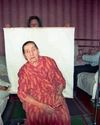
Passport Alexandr Chekmenev
When I witnessed how people were living out the final years of their lives, it made a very strong impression on me. I remember a blind woman. I did not know that she was blind, so I asked her to look into the camera, but she said that she could not see. I thought why would a blind person need a passport? She did not have too much time left anyway.
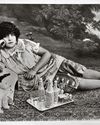
Female Portraiture In Iran Parisa Damandan
Parisa Damandan remembers her portraits taken as a young girl at a local studio in Isfahan. They were snapshots of a small, shorthaired schoolgirl in uniform turning into a young girl with long straight hair and finally into one on the threshold of womanhood. Later in 1978, Iran’s new political regime swept away existing institutions and put in place harsh laws.
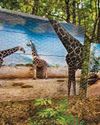
Matheran Green Festival
A community of people geared towards revolutionising the way we live, work, play, and learn came together to organise a festival dedicated to leading greener lives. The festival aimed to encourage an eco-friendly way of living and conservation of nature and hoped to promote a healthy and self-sustainable lifestyle.
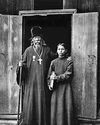
Russian Religious Pilgrimage Early 1900s
Throughout revolutions that made history and the ones that continue to shape today’s world, photography has provided understanding of the dynamic nuances that make a nation. Similarly, to the transmutation of the political, industrial, and religious scenario in 19th century Russia, photography acted as an important medium in documenting the unrest.
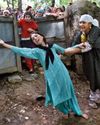
Altaf Qadri Kashmir The Bleeding Paradise
Being an insider, Altaf Qadri’s photographs of the Kashmir conflict are hard hitting, evocative and unapologetic. Yet they are personal, flawed and have an air of intimacy to them. It is this alienated sense of intimacy that makes his photographs transcend the violence depicted in them, into a space where empathy resides. Through his documentation, Altaf seeks to create a channel for an open and fair dialogue that lies beyond accusations and finger pointing. From his photographs, it is clear that violence can only ever beget violence; hate can only ever beget hate. It does not matter which side you are on, his photographs will move you enough to reflect, question the mindless violence at various levels, especially the infiltration from other side of Kashmir and the support of Pakistan’s ISI for the conflict to go on and for inflicting more deaths to isolate the local people who have populated the valley since 1989.
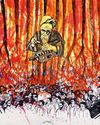
Rumoured in Branches
Artist and art critic Rollie Mukherjee is a non-muslim, non-Kashmiri based in Baroda, Gujarat. Her concern and urge to communicate the sufferings and pain of the Kashmiris were ignited by the stories shared by the few Kashmiris who used to come to her house frequently in the 90s to sell warm dresses and carpets. The memories of these stories stuck with her and would revisit whenever she read or watched something related to Kashmir. Unfortunately, events of the last one month have taken the situation to its painful limits in Kashmir. Here is what she shares with Creative Image.
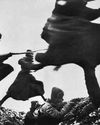
Capturing World War II-Dmitri Baltermants
In 1962, Andrei Tarkovsky, the iconic Russian director, made a film called Ivan’s Childhood, a masterpiece that remarkably depicted conflict. The actual act of fighting was realised in its aftermath—by way of visuals of desolate landscapes and grim, darkly lit scenes. When watching the film closely, it is hard not to be reminded of the great photographer Dmitri Baltermants’ work. Though many of us continue to consider him as one of the greatest war photographers of all time, and some would say even better than Robert Capa, but unfortunately, the bias in the Western world, and especially in America, makes it all the more rare to get recognised on the basis of quality of your work and the creative explorations you make.
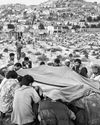
Majid Saeedi Afghanistan The Conflict Within
Afghanistan–The land of the Kabuliwala! A land defined by and defining etiquette, with a rich and powerful culture where poetry and music comes alive–such was my introduction to the mystical land of Afghanistan. The Afghanistan of today, however, is entirely different. The beautiful people, mountains and the poetry still linger, but are marred with blood, dust and war. Majid Saeedi is an Iranian documentary photographer who has been covering conflict areas in the middle-east for more than two decades now.
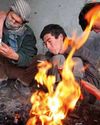
Paula Bronstein: The Endless Strife of Afghan Women
Afghanistan is a country where sadness and-sometimes-happiness is a way of life. Paula Bronstein has made some of the most extraordinary photos of her career in this country. “Face after face, I see complex and intriguing gazes, the constant tension between optimism and reality that so many people live with. I keep going back, motivated and inspired by those faces, pushing against the difficulties.” She hopes to find fewer doors slammed shut, and more people with something to smile about. There are many warm-hearted as well harrowing stories which still need to be told, she feels.
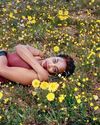
Photographing The Female
Photographing the Female is a transnational project and exhibition exploring female identity and representation in photography through the lens of contemporary image makers. Formed to reflect the diverse state, condition and role of the female around the world today, we are using the power of photography to inspire new ways of seeing and start conversation!